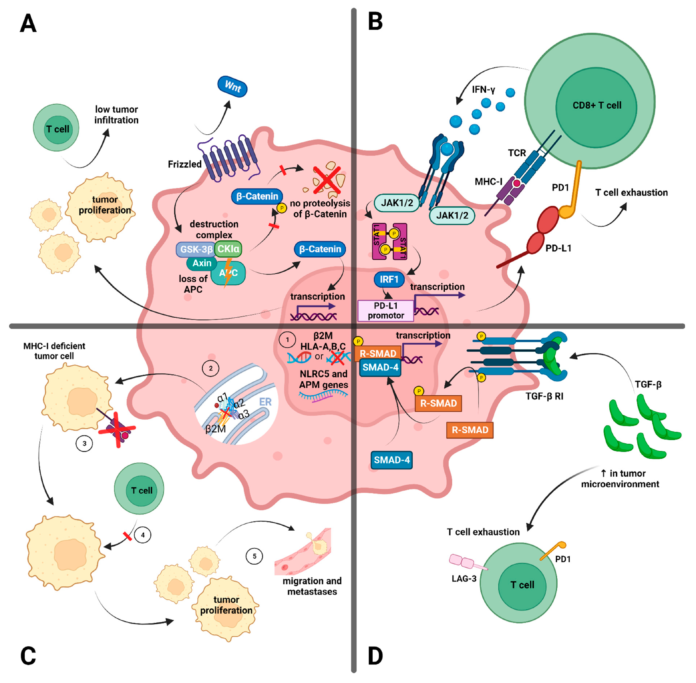
Genetic Mutations: Unraveling the Links to Colon Cancer
Genetic mutations play a significant role in the development of various diseases, including cancer. Among the many types of cancer, colon cancer has been found to have a strong association with genetic mutations. This article aims to delve into the intricate relationship between genetic mutations and colon cancer, while addressing some frequently asked questions related to the subject.
Understanding Genetic Mutations
Genetic mutations occur when there are changes in the DNA sequence that make up our genes. These changes can be caused by various factors, including environmental influences, lifestyle choices, and predispositions inherited from our parents. In some cases, mutations can result in dysfunctional genes, leading to the development of diseases such as cancer.
Genetic Mutations and Colon Cancer
Colon cancer, also known as colorectal cancer, is the second most common cause of cancer-related deaths worldwide. It is a malignant tumor that forms in the colon or rectum, typically starting as a polyp – a precancerous growth on the inner lining of the colon or rectum. Genetic mutations have been recognized as a significant contributing factor in the development of colon cancer.
Hereditary Colon Cancer Syndromes
Some genetic mutations can be inherited and passed down through generations within families, leading to an increased risk of developing colon cancer. There are several hereditary colon cancer syndromes that are associated with specific genetic mutations. One well-known example is Lynch syndrome, also called hereditary non-polyposis colorectal cancer (HNPCC), which accounts for around 3-5% of all colon cancer cases. Individuals with Lynch syndrome are at a higher risk of developing not only colon cancer but also other types of cancers, including endometrial and ovarian cancer.
Another hereditary colon cancer syndrome is familial adenomatous polyposis (FAP), caused by mutations in the adenomatous polyposis coli (APC) gene. FAP leads to the development of hundreds to thousands of polyps in the colon, significantly increasing the risk of colon cancer. These inherited mutations explain only a small portion of colon cancer cases, while the majority of cases are sporadic, meaning they occur without any prior family history.
Sporadic Colon Cancer and Acquired Mutations
The majority of colon cancer cases arise from acquired mutations, which occur spontaneously during a person’s lifetime. Acquired mutations can result from a combination of various factors, such as exposure to carcinogens, age, dietary choices, and inflammation within the colon. However, it is essential to note that not all individuals exposed to these risk factors will develop colon cancer, highlighting the complex interplay between genetic mutations and environmental factors.
Frequently Asked Questions:
Q: Can genetic mutations be detected before the development of colon cancer?
A: Yes, certain genetic tests can identify mutations associated with increased colon cancer risk. These tests can determine the presence of well-known hereditary colon cancer syndromes, providing individuals with valuable information for early detection and prevention.
Q: Are all genetic mutations associated with an increased risk of colon cancer?
A: No, not all genetic mutations are linked to colon cancer. Some mutations may have no known association with colon cancer, while others might contribute to the development of other diseases or have no known health impacts at all.
Q: Can lifestyle choices affect the occurrence of genetic mutations?
A: Although genetic mutations are inherently linked to our DNA, lifestyle choices, such as tobacco use, poor diet, sedentary behavior, and excessive alcohol consumption, can increase the likelihood of acquiring mutations. These lifestyle factors act as external triggers that can influence the occurrence of genetic mutations and, consequently, the development of colon cancer.
Q: Is colon cancer preventable?
A: While it is impossible to eliminate all risks, certain measures can reduce the likelihood of colon cancer. Regular screenings such as colonoscopies, adopting a balanced diet rich in fruits, vegetables, and whole grains, maintaining a healthy weight, exercising regularly, refraining from tobacco and excessive alcohol consumption, and managing chronic inflammation play crucial roles in preventing colon cancer.
In conclusion, genetic mutations are closely linked to the development of colon cancer. While inherited mutations in specific genes increase the risk of developing colon cancer, acquired mutations resulting from various environmental and lifestyle factors also play a significant role. Early detection through genetic testing and adopting a healthy lifestyle can aid in prevention and provide individuals with the best chance for successful treatment.

















